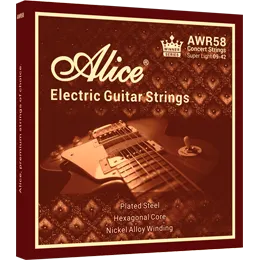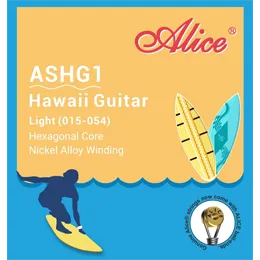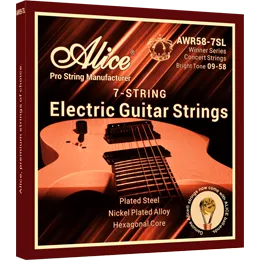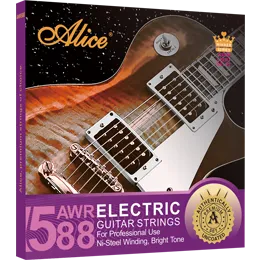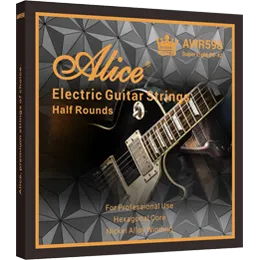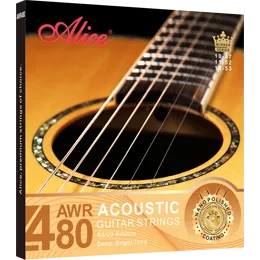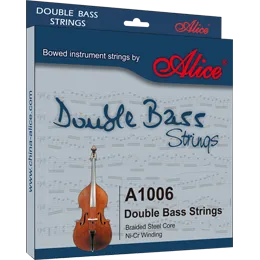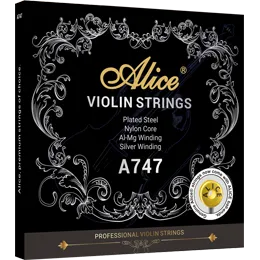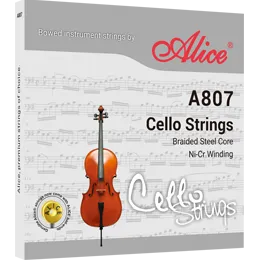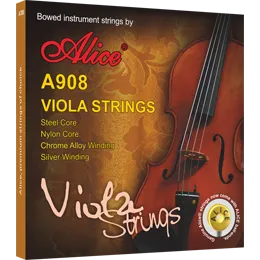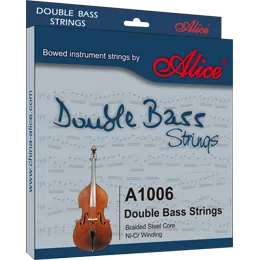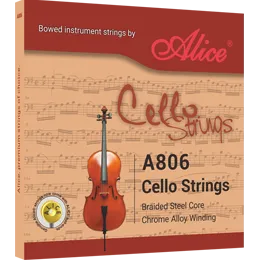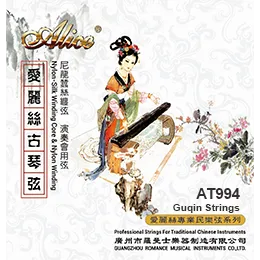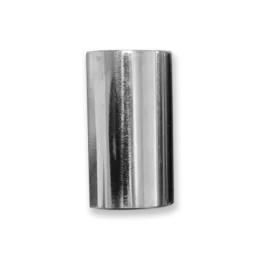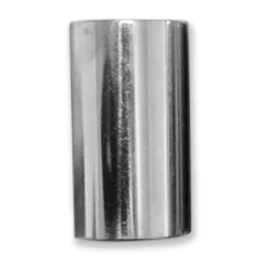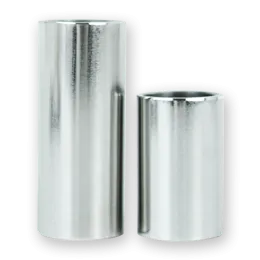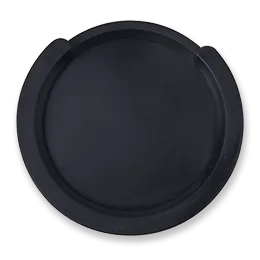Complete Guide to Guitar String Materials
Choosing the right guitar strings is one of the most important decisions a guitarist can make—yet it's often overlooked. Beyond string gauge or brand, the material of the strings plays a crucial role in shaping the tone, feel, and even longevity of your instrument. Whether you play acoustic, electric, or classical guitar, understanding the different types of string materials can help you find the sound and feel that best matches your playing style.
Why Guitar String Material Matters
Each string material affects:
Tone quality (bright vs. warm)
String life and corrosion resistance
Tension and feel under the fingers
Volume and projection
Playability and response
The “best” material depends on your guitar type (acoustic, electric, classical), musical genre, and personal preferences.
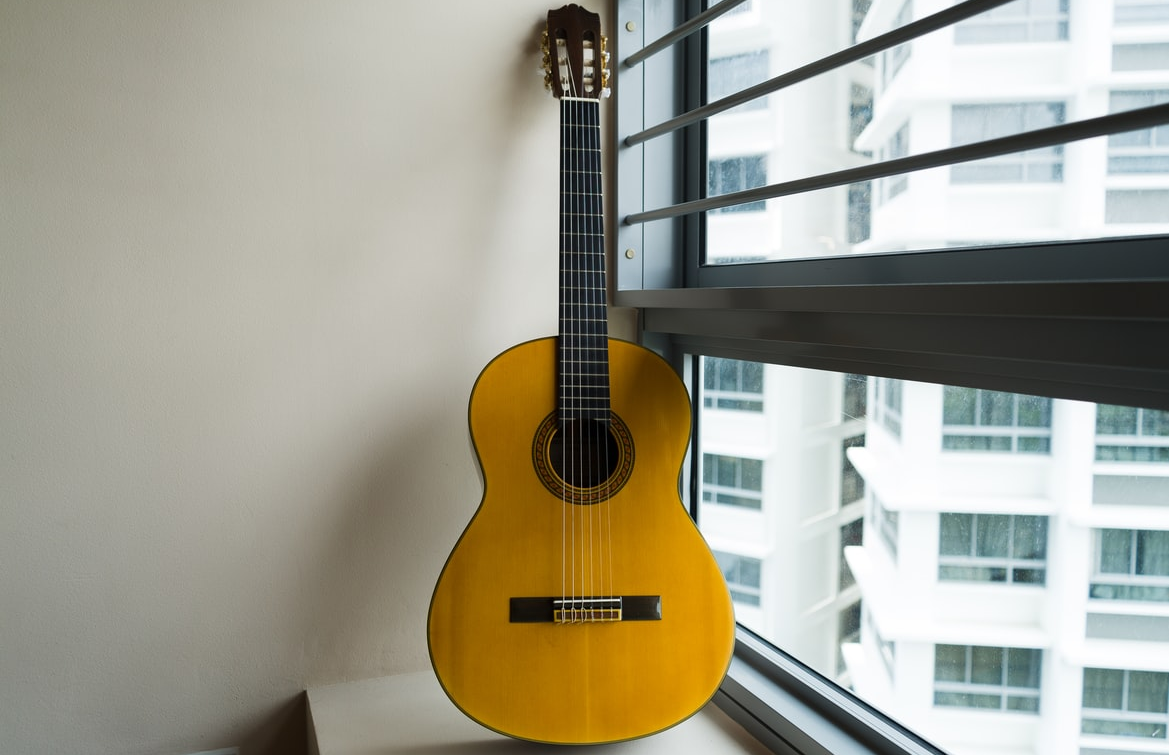
1. Phosphor Bronze (Acoustic Guitar)
Phosphor bronze is one of the most popular materials for acoustic guitar strings.
Features:
Composed of 92% copper, 7% tin, and 1% phosphorus
Warm, balanced tone with excellent low-end response
Long-lasting due to corrosion-resistant properties
Best for:
Fingerstyle and folk players
Singer-songwriters
Players looking for a rich, mellow tone
2. 80/20 Bronze (Acoustic Guitar)
80/20 bronze (also called brass strings) is a blend of 80% copper and 20% zinc.
Features:
Brighter and crisper tone than phosphor bronze
Great articulation and presence
Shorter lifespan (oxidizes quickly)
Best for:
Recording artists needing clarity
Bright-toned guitars or dark-sounding wood types
Players who change strings often
3. Silk and Steel (Acoustic Guitar)
These strings use a steel core wrapped in silk or nylon threads beneath the outer winding.
Features:
Softer feel and lower tension
Mellow, classical-like tone
Less volume but easier on the fingers
Best for:
Beginners or players with sensitive fingers
Folk and fingerpicking styles
Parlor or vintage-style guitars
4. Nickel-Plated Steel (Electric Guitar)
This is the most common material for electric guitar strings.
Features:
Bright, punchy sound with good sustain
Balanced tone that suits many genres
Magnetic, perfect for electric pickups
Best for:
Rock, blues, pop, and general-purpose playing
Players who want a responsive and versatile string
5. Pure Nickel (Electric Guitar)
Before nickel-plated steel became the standard, pure nickel strings were the norm.
Features:
Warmer, vintage-style tone
Smoother feel under fingers
Lower output than nickel-plated steel
Best for:
Jazz, classic rock, and blues
Players seeking a more laid-back, vintage tone
6. Stainless Steel (Electric Guitar)
These strings are made for durability and brightness.
Features:
Very bright tone with a snappy attack
Resistant to corrosion
Slightly rougher texture
Best for:
Players with acidic sweat
High-output genres like metal or punk
Environments with high humidity
7. Coated Strings (Both Acoustic and Electric)
These strings feature a protective polymer layer over the winding.
Features:
Longer lifespan (up to 3–5 times more than regular strings)
Smoother feel and less finger noise
Slight reduction in brightness for some coatings
Best for:
Touring musicians or players who dislike changing strings often
People with sweaty hands or corrosive touch
Players seeking convenience and value
8. Nylon Strings (Classical Guitar)
Classical guitars use nylon strings, not metal.
Features:
Soft and flexible with low tension
Warm and gentle tone
Not magnetic—unsuitable for electric pickups
Note: The bass strings are usually silver-plated copper wound over a nylon core.
Best for:
Classical, flamenco, and Latin guitar styles
Beginners or young players
Fingerstyle and solo playing
9. Polymer and Carbon Strings (Classical/Hybrid)
Advanced players sometimes choose fluorocarbon or composite strings for modern classical tones.
Features:
Brighter and more stable tuning than traditional nylon
Sharper attack and clearer intonation
Often used for concert or performance situations
How to Choose the Right String Material for You
Here’s a quick guide based on your needs:
If you want... | Choose |
Bright, crisp tone (acoustic) | 80/20 Bronze |
Warm, balanced tone (acoustic) | Phosphor Bronze |
Softer, mellow feel | Silk and Steel |
Vintage electric tone | Pure Nickel |
Bright, aggressive electric tone | Stainless Steel or Nickel-Plated Steel |
Longevity and less maintenance | Coated Strings |
Classical sound and low tension | Nylon |
Modern classical brilliance | Carbon or composite |
If you're looking for a bright, crisp tone on your acoustic guitar, then 80/20 Bronze strings are an excellent choice. They offer a clear, shimmering sound that cuts through well.
For those who prefer a warm and balanced tone, especially suitable for singer-songwriters or fingerstyle players, Phosphor Bronze strings deliver a rich and mellow character.
If comfort is your top priority and you enjoy a softer, more mellow feel, Silk and Steel strings provide a gentler playing experience with reduced tension.
When it comes to electric guitars, players seeking a vintage tone should consider Pure Nickel strings. They offer a smooth feel and a classic, warm sound that suits jazz, blues, and early rock.
If your style demands a bright and aggressive tone, such as in rock or metal, go for Stainless Steel or Nickel-Plated Steel strings. These provide excellent brightness and bite, with enhanced durability.
For players who value string longevity and minimal maintenance, Coated Strings are ideal. They feature a protective layer that resists corrosion and extends the life of your strings significantly.
If you're playing classical guitar or want low string tension with a warm sound, Nylon Strings are the traditional choice. They're easy on the fingers and well-suited for classical, flamenco, and fingerstyle music.
Finally, for classical guitarists seeking a modern, bright, and stable tone, Carbon or composite strings offer enhanced projection, tuning stability, and brilliance—ideal for performance situations.
Final Thoughts
There’s no one-size-fits-all answer to string material—your choice should reflect your playing style, musical genre, and tonal preference. Whether you play gently with your fingertips or hammer down with a pick, the right string material will complement your guitar and your technique.
Try experimenting with different materials to discover what brings out the best in your instrument. Many players even switch between brands or materials depending on the season, gig type, or guitar used.
Discover Your Sound with Alice Strings
If you're looking for reliable, high-quality guitar strings in a wide range of materials, Alice Strings offers some of the best value in the market. From phosphor bronze and 80/20 bronze for acoustic guitars to nickel-plated steel and coated strings for electric guitars, Alice combines advanced manufacturing with professional performance standards.
Alice Strings are designed to deliver clarity, balance, and durability, making them a favorite among players of all levels. Whether you're just starting out or preparing for a stage performance, Alice provides the tone and consistency you can count on—at a price that makes experimenting easy.
Relate News
-
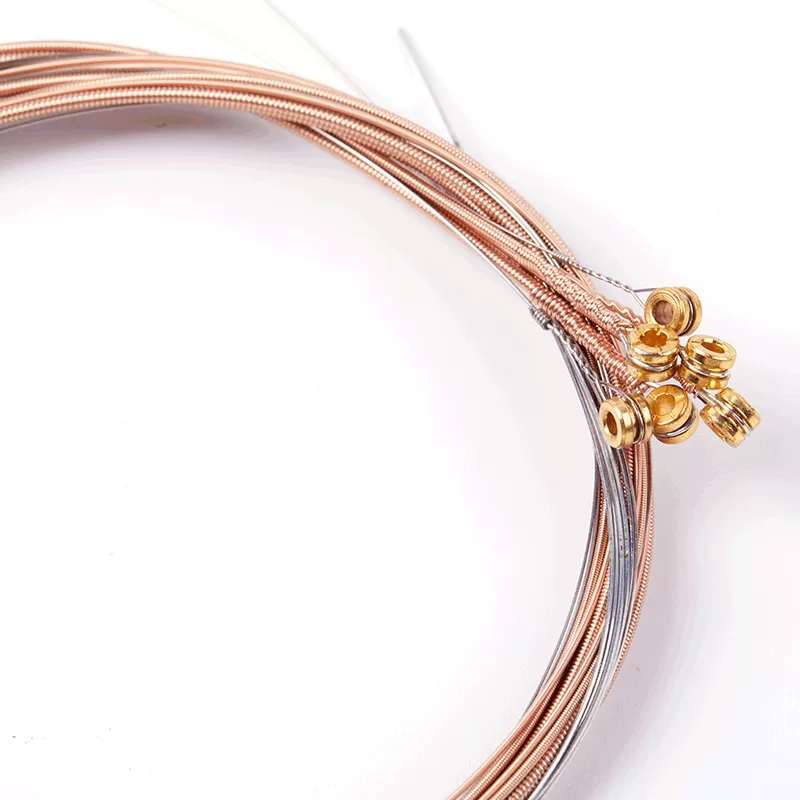 Acoustic guitar strings play a crucial role in shaping tone, projection, and overall playing comfort. For acoustic instruments, string choice directly affects how the guitar responds to the player’s touch, from subtle fingerstyle dynamics to full strumming patterns. Understanding how different materials, gauges, and constructions influence sound helps players choose acoustic guitar strings that truly match their musical style, playing habits, and performance needs.
Acoustic guitar strings play a crucial role in shaping tone, projection, and overall playing comfort. For acoustic instruments, string choice directly affects how the guitar responds to the player’s touch, from subtle fingerstyle dynamics to full strumming patterns. Understanding how different materials, gauges, and constructions influence sound helps players choose acoustic guitar strings that truly match their musical style, playing habits, and performance needs. -
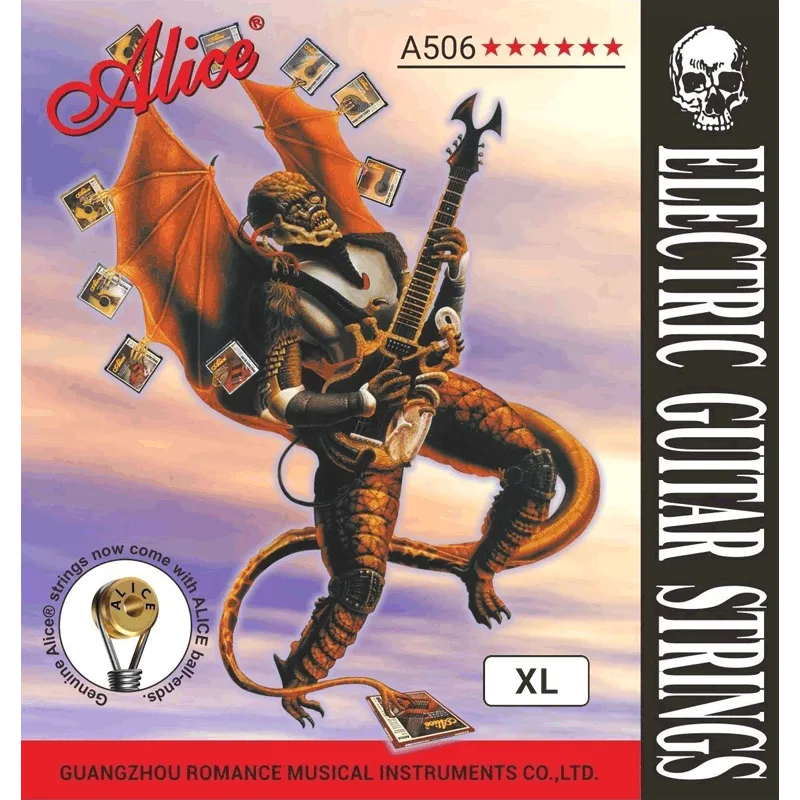
Top 5 Electric Guitar Strings for Rock and Blues Players
When it comes to rock and blues, your guitar strings play a major role in defining your tone and playing feel. The right set of electric guitar strings can help you get closer to your signature sound. In this guide, we’ll look at five of the best electric guitar string types for rock and blues players, focusing on tone, playability, and durability. -

How to Choose the Right Guitar Strings for Your Guitar
(Guide to Selecting the Perfect Strings for Acoustic, Electric, Classical, and Bass Guitars) Choosing the right guitar strings is one of the key steps to achieving your ideal tone and playing comfort. Whether you play acoustic, electric, classical, or bass guitar, the right string set can dramatically improve sound quality, tuning stability, and performance longevity. -
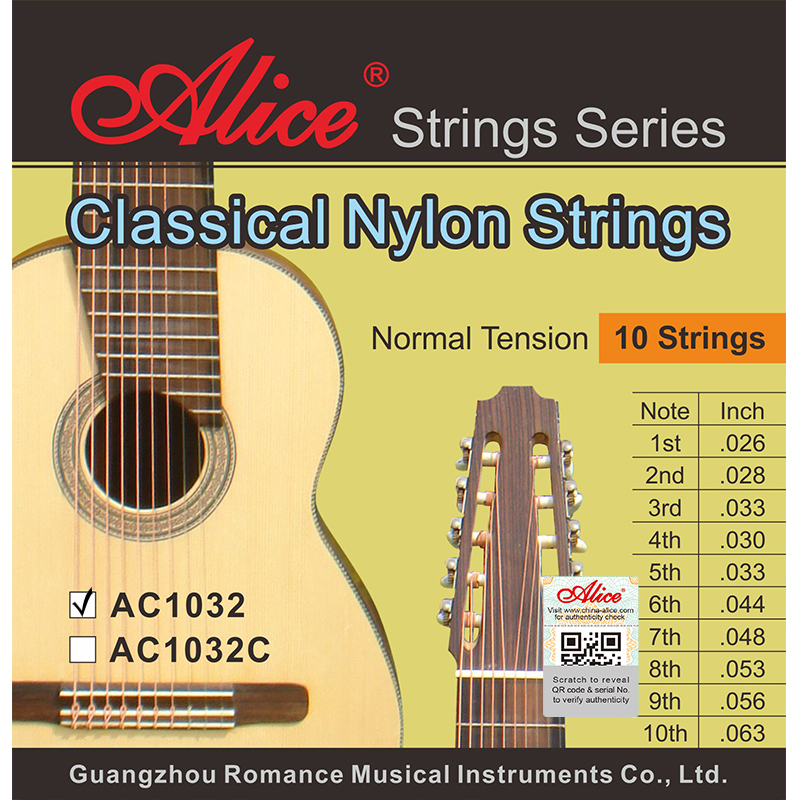
Nylon Strings for Classical Guitars: Everything You Need to Know
At the heart of a classical guitar’s unique voice lies its nylon strings, which directly influence tone, playability, and overall musical experience. For musicians, retailers, and distributors, understanding the nuances of nylon strings is essential for making informed choices that meet performance and commercial needs. -
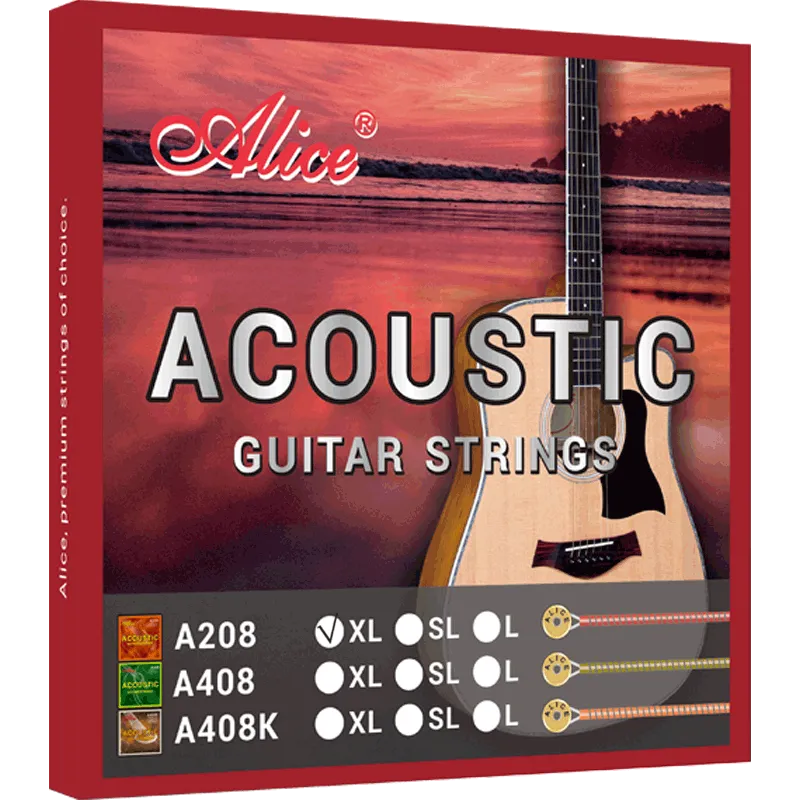
5 Key Indicators to Identify High-Quality Acoustic Guitar Strings
Acoustic guitar strings may look simple, but the difference between average and high-quality strings can be heard and felt immediately. Whether you are a professional performer, a studio musician, or a passionate hobbyist, learning how to recognize the hallmarks of premium acoustic guitar strings will help you achieve better sound, protect your instrument, and improve your playing experience. -
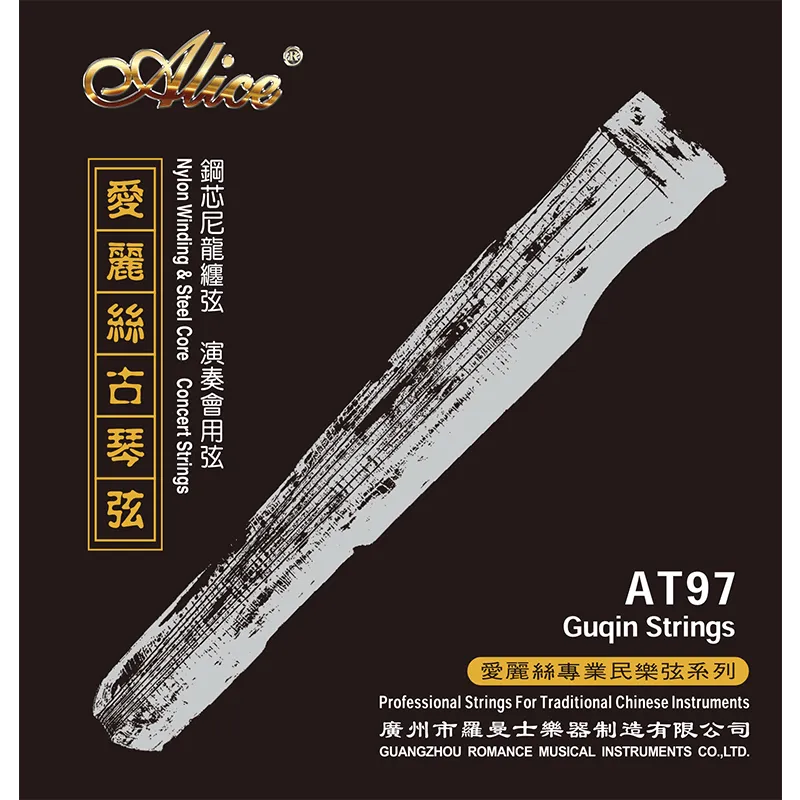
What Are Guqin Strings Made Of?
At the heart of the guqin’s unique voice lies one essential element: its strings. To the untrained eye, guqin strings may seem like simple cords stretched across wood. But in reality, they are complex, delicately crafted components that greatly influence the tone, resonance, tension, and even the historical authenticity of the instrument. -
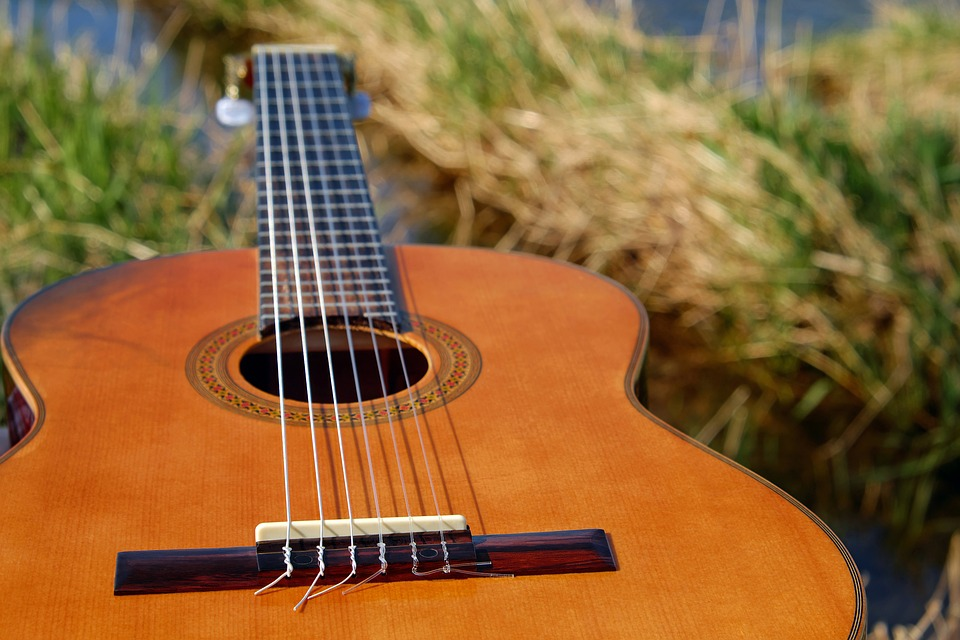
Silk Strings, Steel Strings, and Nylon Strings: Which Is Best for Your Traditional Music Performance?
Among the many string options available, three dominate discussions around traditional and acoustic instruments: silk strings, steel strings, and nylon strings. Each has unique characteristics, strengths, and limitations. But which one is truly best for your playing style, musical tradition, and personal preference? -

Orchestral Strings Explained: A Beginner-Friendly Guide to Violin, Viola, Cello, and Double Bass
Alice Strings is a trusted global brand offering a full range of high-quality strings for orchestral instruments, including violins, violas, cellos, and double basses. -

Tone Comparison of Brass Alloy, Phosphor Bronze, and Coated Guitar Strings
Alice Strings is a trusted global brand in the world of musical accessories, offering a wide range of acoustic guitar strings, including 80/20 bronze, phosphor bronze, and coated variants. -

How to Choose the Right Guitar Strings for Your Performance: A Scenario-Based Buying Guide
Alice Strings is a leading name in the world of musical accessories, offering a wide range of guitar strings tailored for every performance setting. Whether you're gearing up for a rock concert, playing unplugged in an acoustic café, or performing classical masterpieces on stage, Alice provides high-quality strings that deliver consistency, durability, and exceptional tone. -

OEM Guitar String Customization: A Detailed Guide to the Process
In today’s competitive musical instrument market, more brands and retailers are turning to OEM (Original Equipment Manufacturer) guitar strings to offer products under their own names. Whether you’re a startup music brand, a professional luthier, or a well-established music store chain, OEM customization allows you to tailor your guitar strings to meet the specific needs of your customers while building brand identity. -
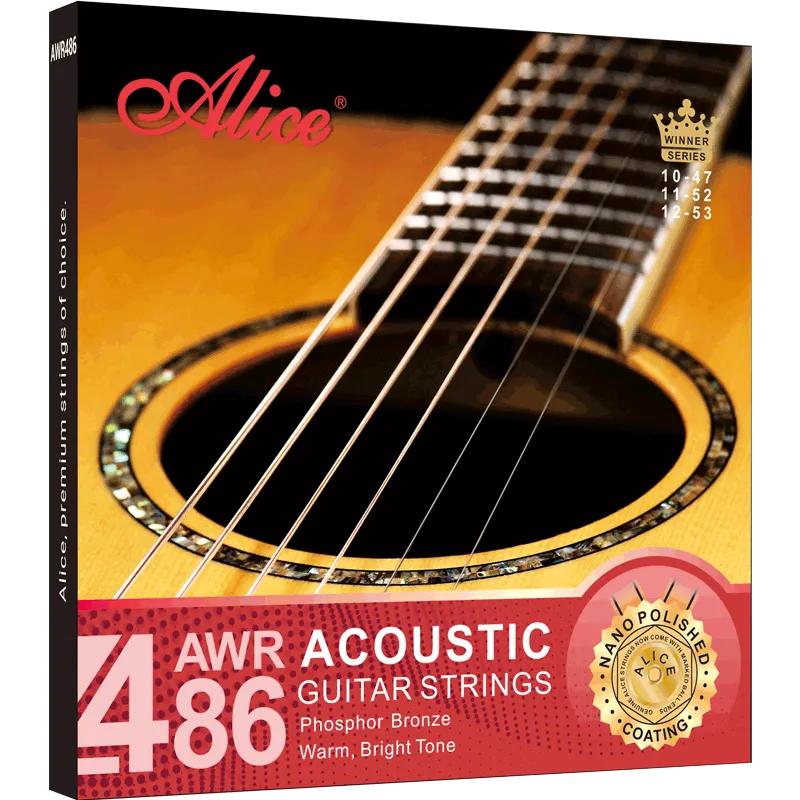
Copper Alloy vs Phosphor Bronze: Which Acoustic Guitar Strings Suit You Best?
When it comes to acoustic guitar strings, the material used for the winding plays a critical role in shaping the tone, playability, and overall experience of the instrument. Among the most popular string materials in the market, copper alloy and phosphor bronze stand out for their distinct tonal characteristics and performance advantages.


